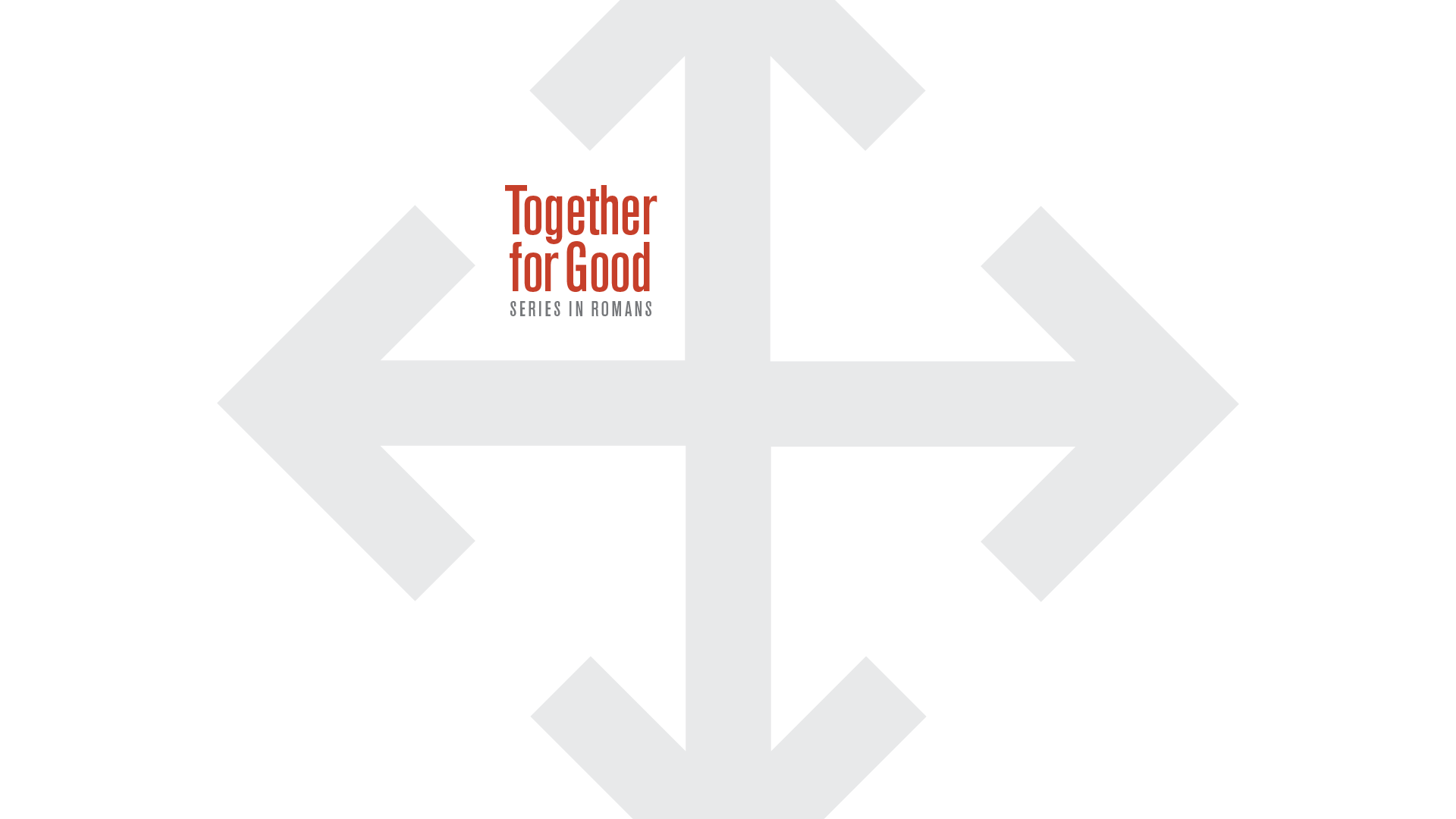The point? Dr. Rebecca Bigler, the scientist in charge of the experiment, concludes that even at the youngest ages, human beings are prone to prefer their own.
But what happens when the differences run deeper than the color of a T-shirt? What happens when we mingle this human tendency with different ethnic, economic, and educational experiences and stories?
Well, let’s just say real unity through diversity can seem like a unicorn, dreamy and nonexistent.
These are some of the challenges the Apostle Paul addresses in the book of Romans, and in 3:1-31 he cuts through all sorts of doubts and differences to remind us of our one hope for oneness: the gracious work of the one God.
DOWNLOADS
See It Be It Audio Video Notes (download pdf) Notes (digital) iTunesSEE IT // BE IT
(WEEKLY COMMUNITY GROUP DISCUSSION GUIDE)
Title: Together For Good: Neither Better Nor Worse // Scripture: Romans 3:1–31
ARRIVAL / SOCIAL TIME 15-20 minutes Spend the first 15 minutes or so of your time together catching up and socializing with one another. Also find time to catch up together on how the assignments from last week turned out.
SERMON REVIEW 5-10 minutes
Grace Snellville is a diverse group made up of people from all walks of life, impacting the next generation as faithful neighbors. Paul’s teaching from Romans 3 deals with an even more diverse group of believers, but he addresses the same question we ask: Does who we are make us better than others? Paul answers by showing that the question is not who is better, but rather how are we receiving and living out the gospel of Jesus as we work together for good?
Using gospel terms, Paul asks two sets of questions that bookend a set of quotations from Old Testament teaching, as well as a series of qualifications to define this main idea. Are we joining God in his work of redemption by showing unity in diversity to demonstrate the power of the gospel? It is this supernatural unity that brings glory to God and good news to the next generation, neighborhoods and nations we encounter every day!
Paul proves that, even if you are one of God’s chosen people, it doesn’t give you freedom to do whatever you please. God is a God of grace and mercy who invites us to love and trust him completely, but our actions must reflect a heart of faith. When they do, we are showing our true humanity made in God’s image.
Paul also warns that sin is a ruthless power, more than simply an action. It is a grasping tyrant that is ungodly in its self-deification, pervasive in its invasion of every aspect of life, and universal in captivating everyone. His chilling account of sinful humanity proves that we are all equal and have all fallen short of the glory of God.
The solution to sin is found in verse 21: but now God. When all hope is gone, God has made a way by faith in Jesus and through the faithfulness of Jesus for us to be fully justified, completely redeemed, and radically atoned. Jesus brings us back into oneness with God. This faith is what empowers us to be unified in our diversity, together for good!
THE MAIN THOUGHT keep this in mind as you facilitate discussion.
When we put our faith and trust in Jesus, we are neither better nor worse; we are unified and diverse.
SEE IT – Questions 10-15 minutes
Picture (What is the story saying?): What are some of the ways Paul shows we are neither better nor worse, but equal? What can we learn from Paul’s selection of Old Testament quotes? Why is sin so dangerous? Who is the answer to our most desperate need?
Mirror (Where am I in the story?): Who do you most often compare yourself to? Why is it equally incorrect to assume you are better or worse off than they are? How did God highlight your need for him? What does the good news of but now God mean to you in your own life?
Window (How does the story change how I see those around me?): What are some real-life examples of issues of diversity you face in your own neighborhood, next generation, or in the nations? How does Paul’s teaching on equality of need and unity of heart inform your response to them?
BE IT – Practice Which of these areas is God speaking to you about this week?
Change UP – Exercise
Read Romans 3 out loud together. What is the most encouraging phrase for you personally from this chapter? Why? What is the most disturbing phrase? Why? Close this time by reading verses 21-26 out loud together once more.
Change IN – Group Activity
Identify the issues of diversity or unity that your group might be facing. From Paul’s teaching, what is one practical way your group could become more diverse? What is one practical way you could become more unified? Commit to do them!
Change OUT – Life Application Assignment
Who is God asking you to forgive? Ask him to give you a specific name of someone. Now seek to be a catalyst for freedom by sharing God’s redemption, or to unite with them by open invitation and generous hospitality.
CLOSING PRAYER 5 minutes
Take a few minutes to gather any prayer requests and pray for each other to SEE IT and BE IT this week.

